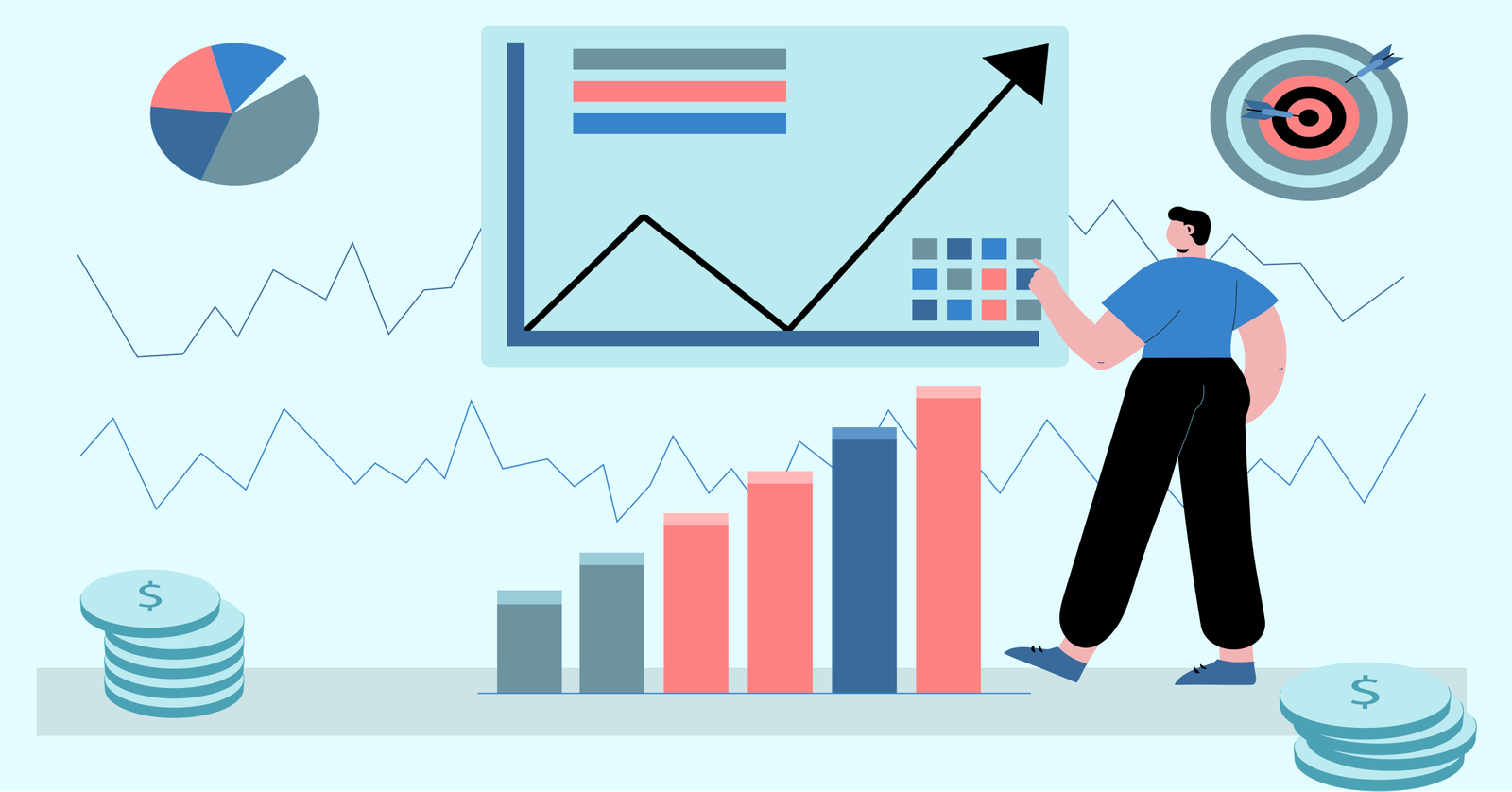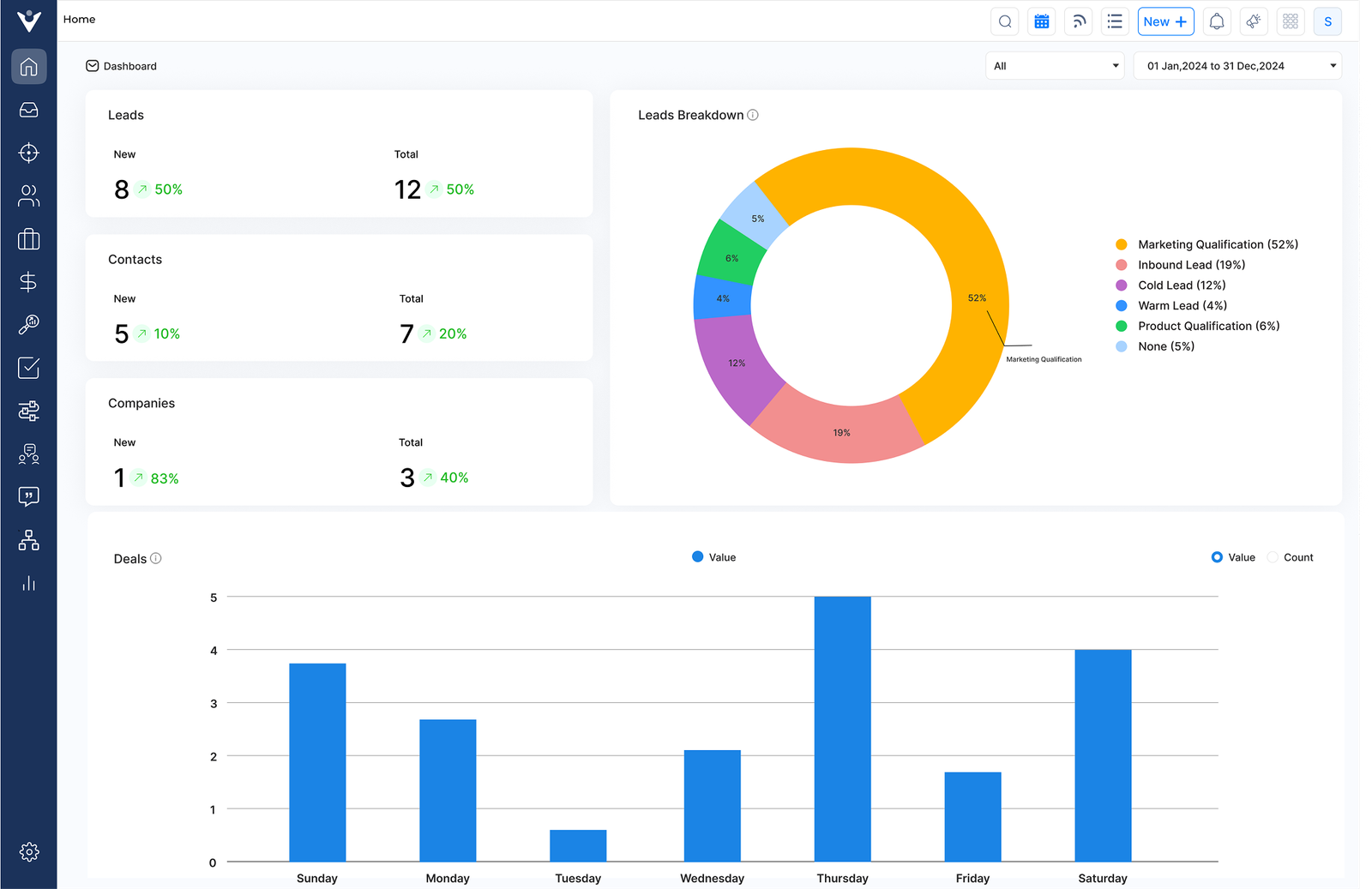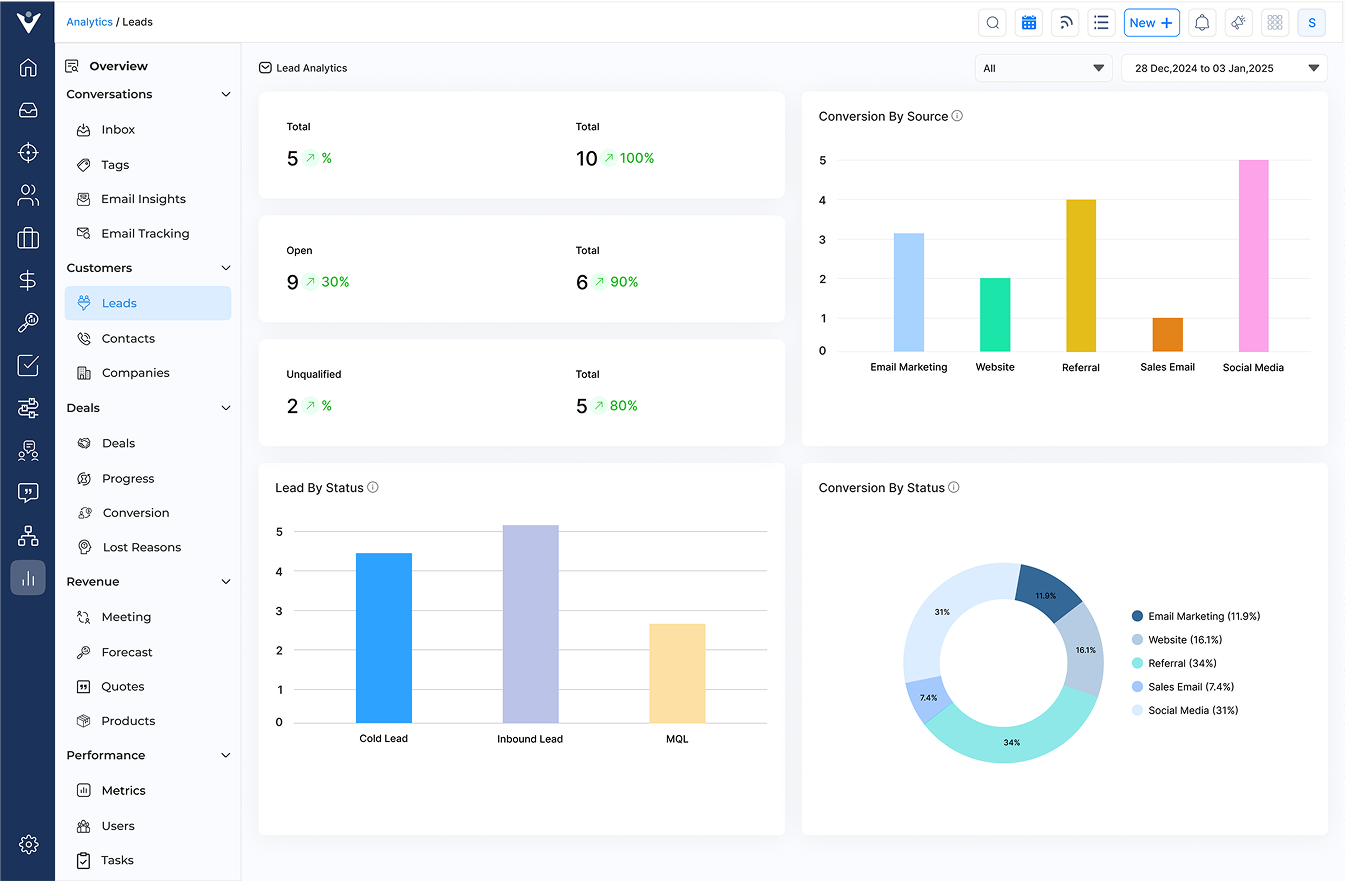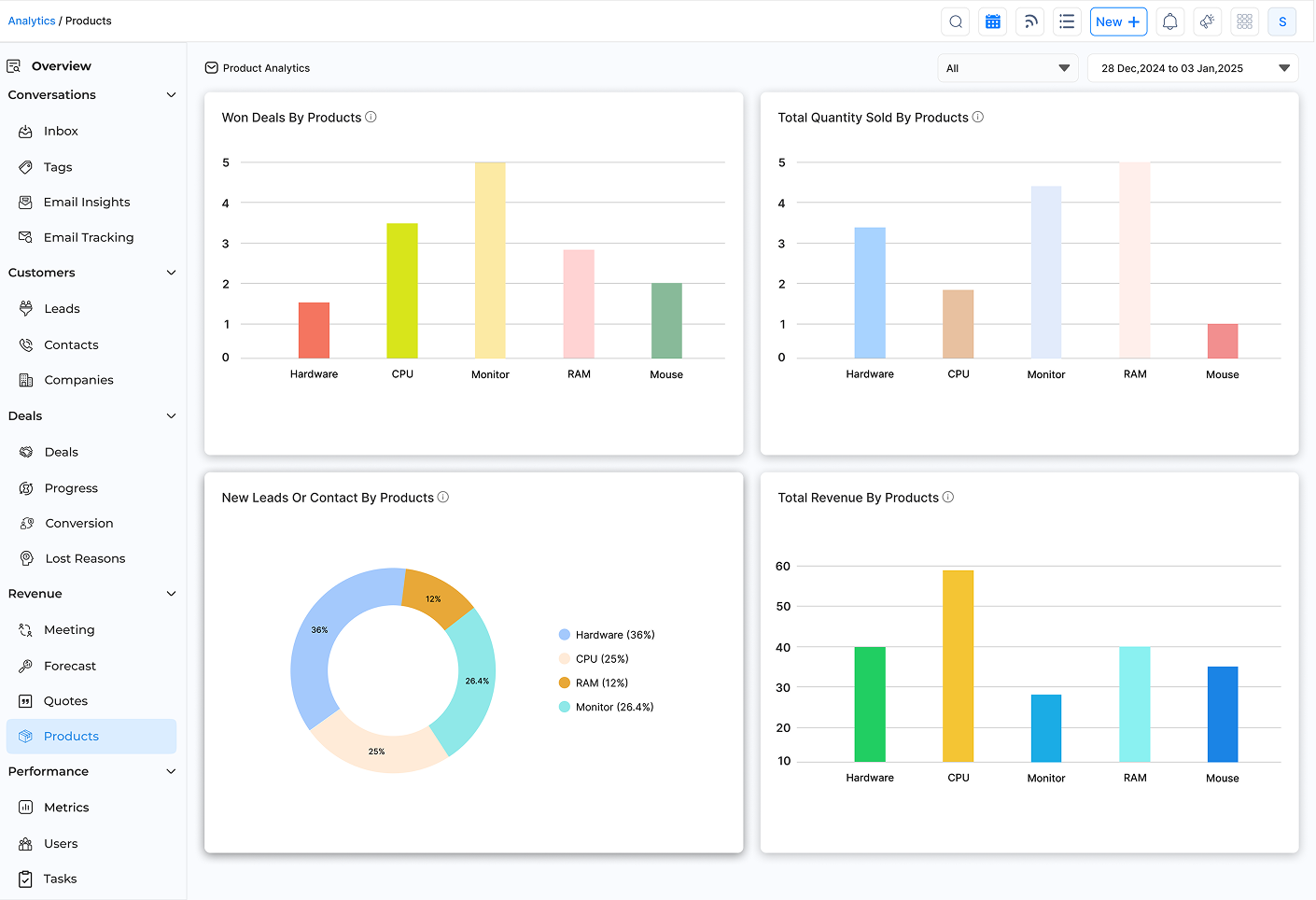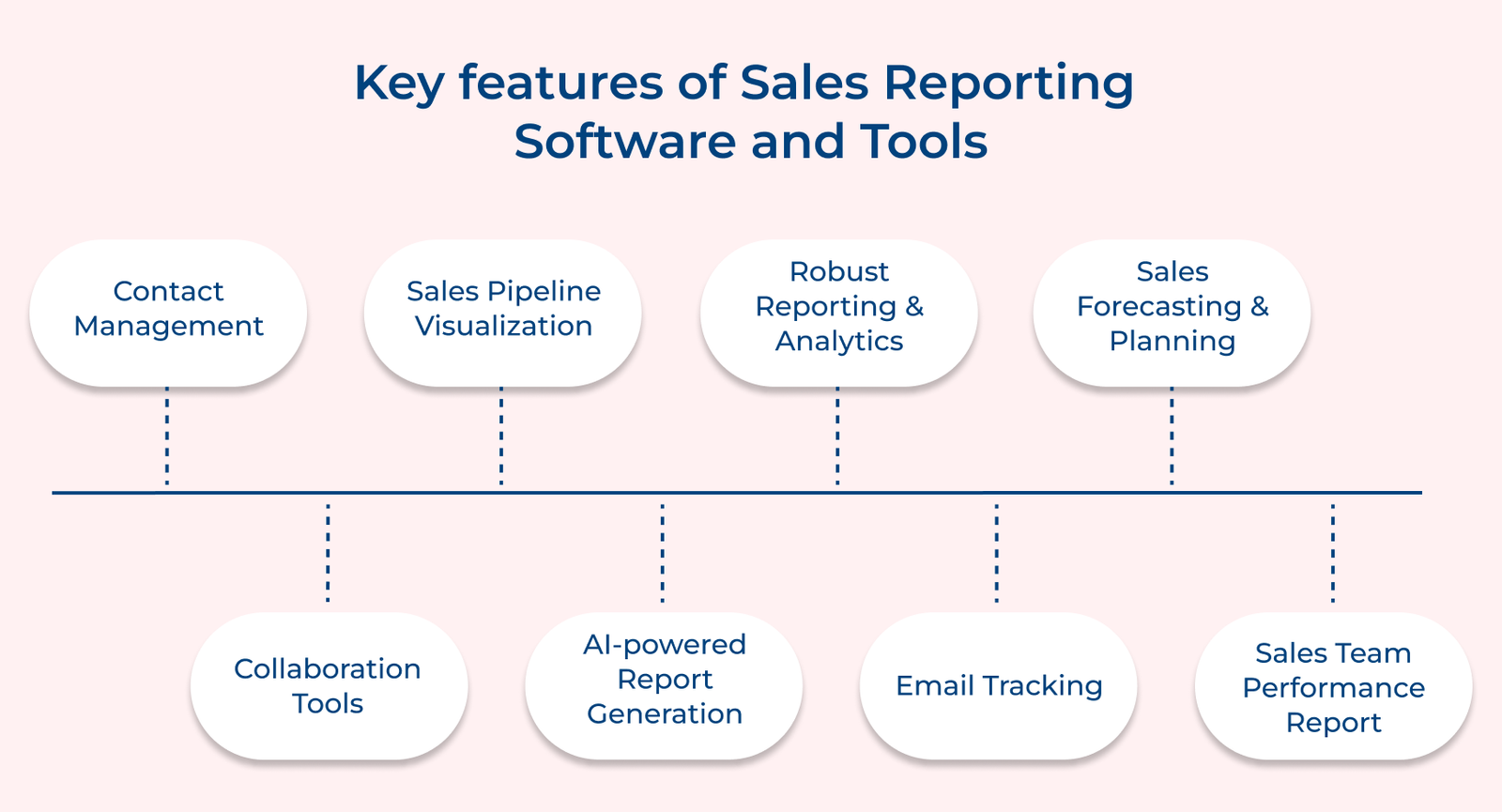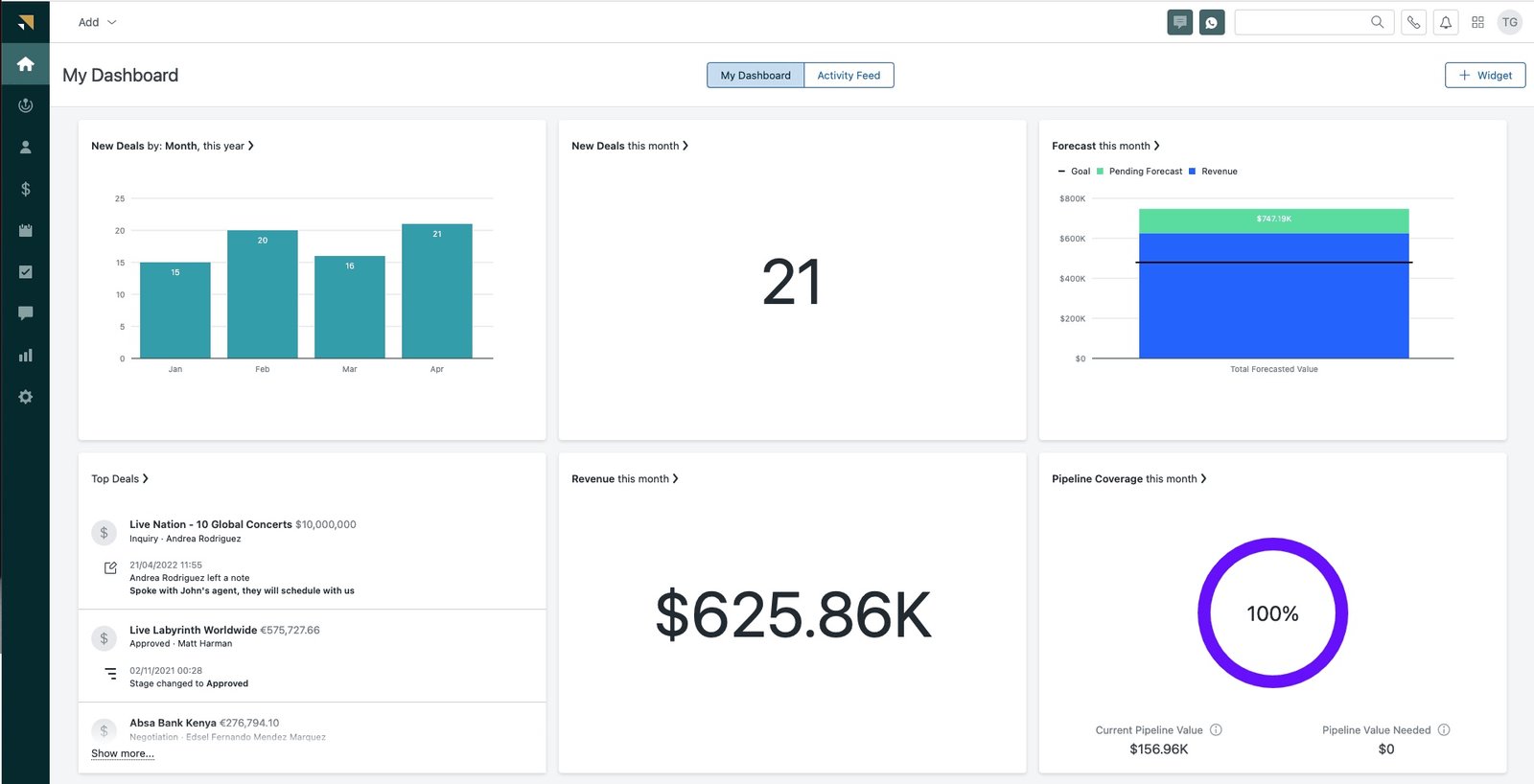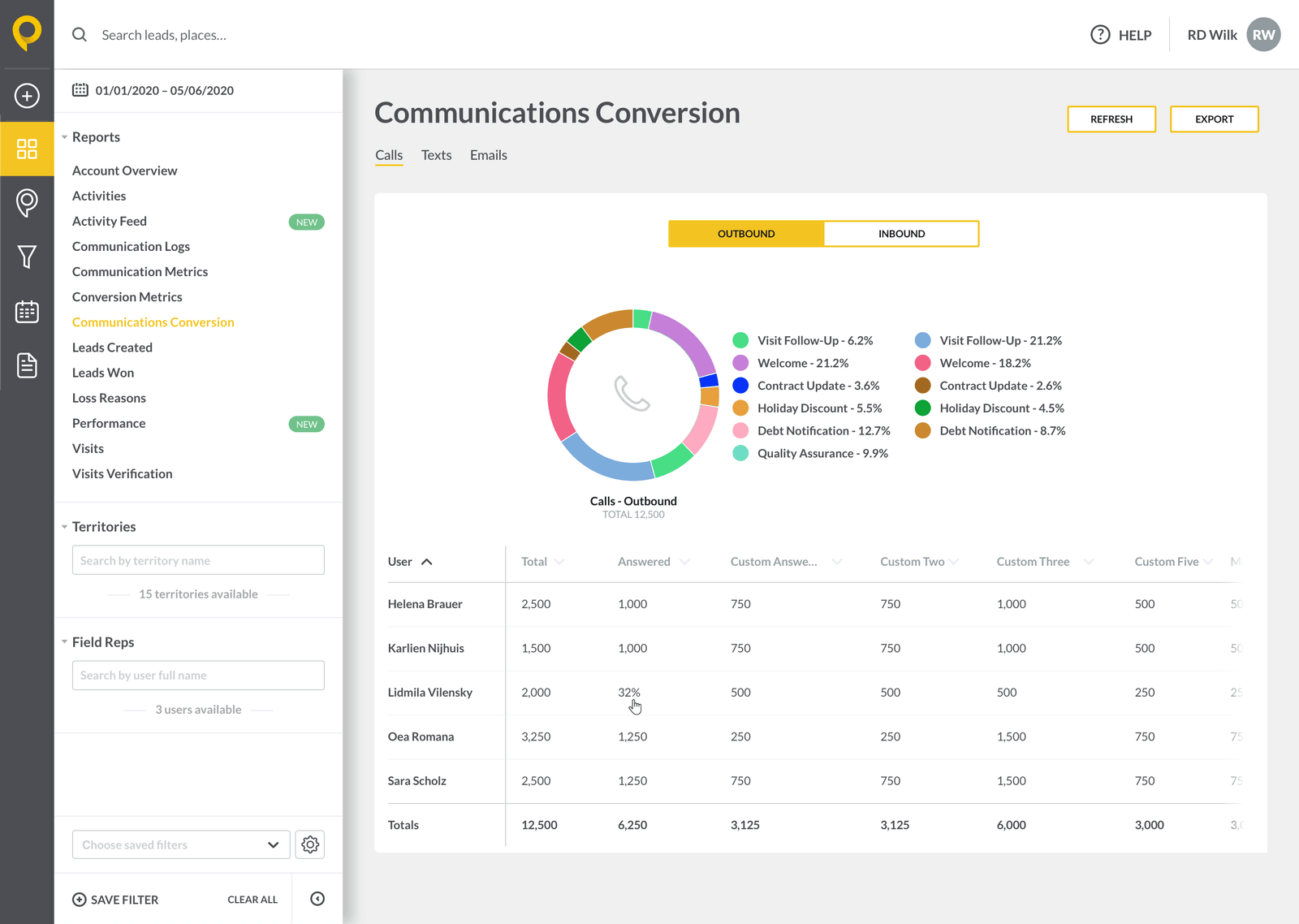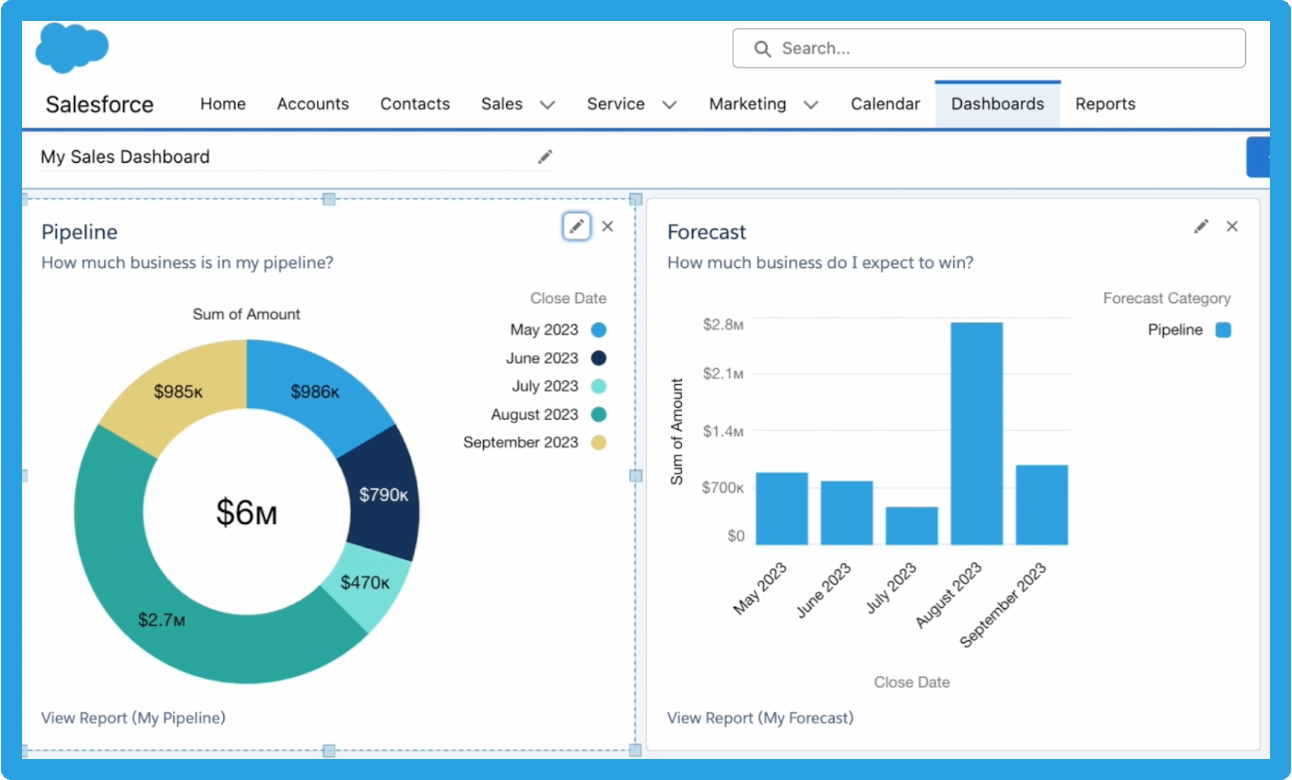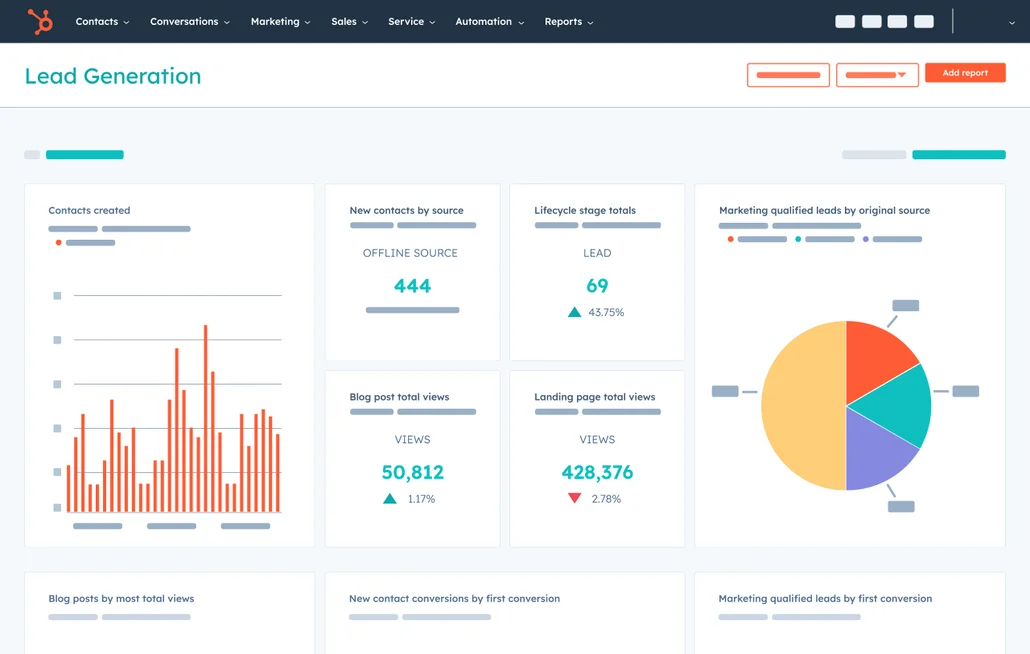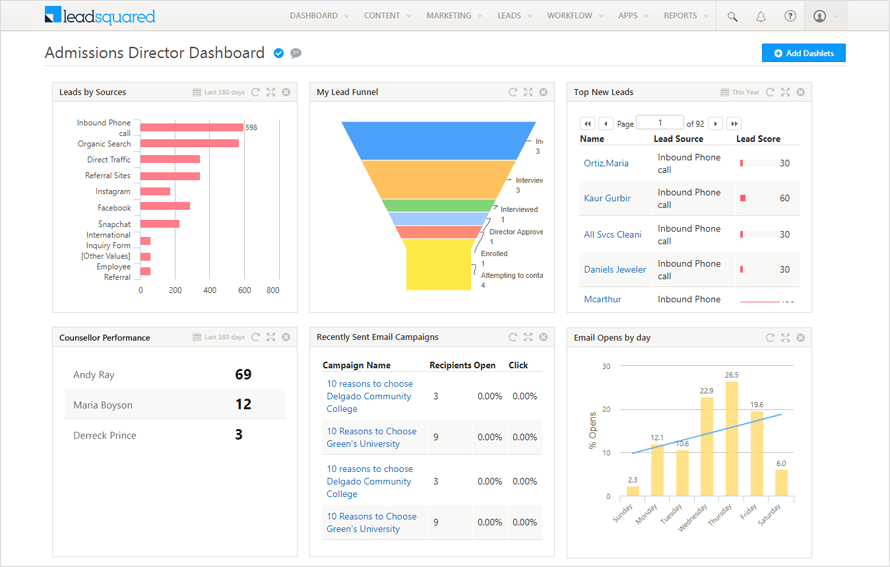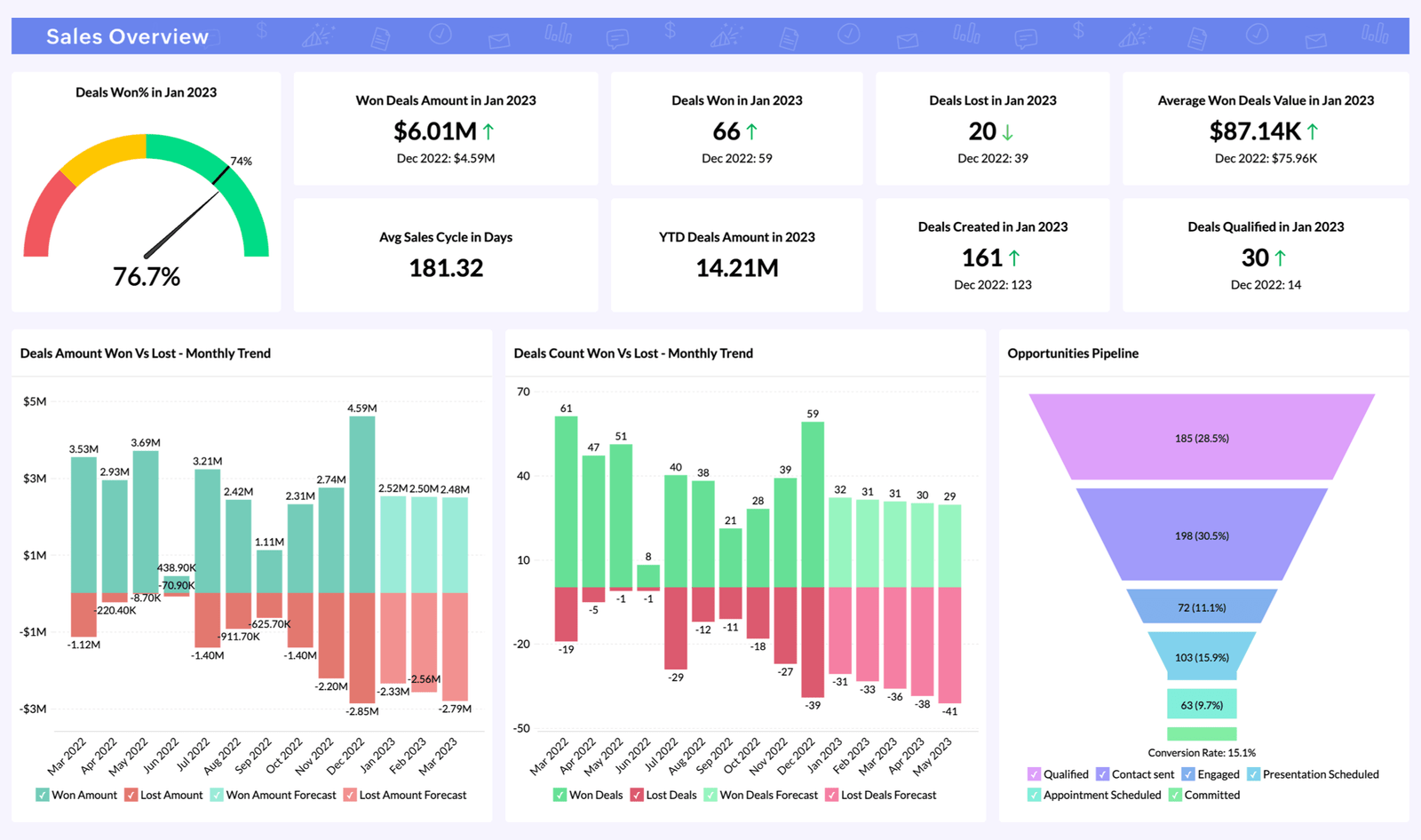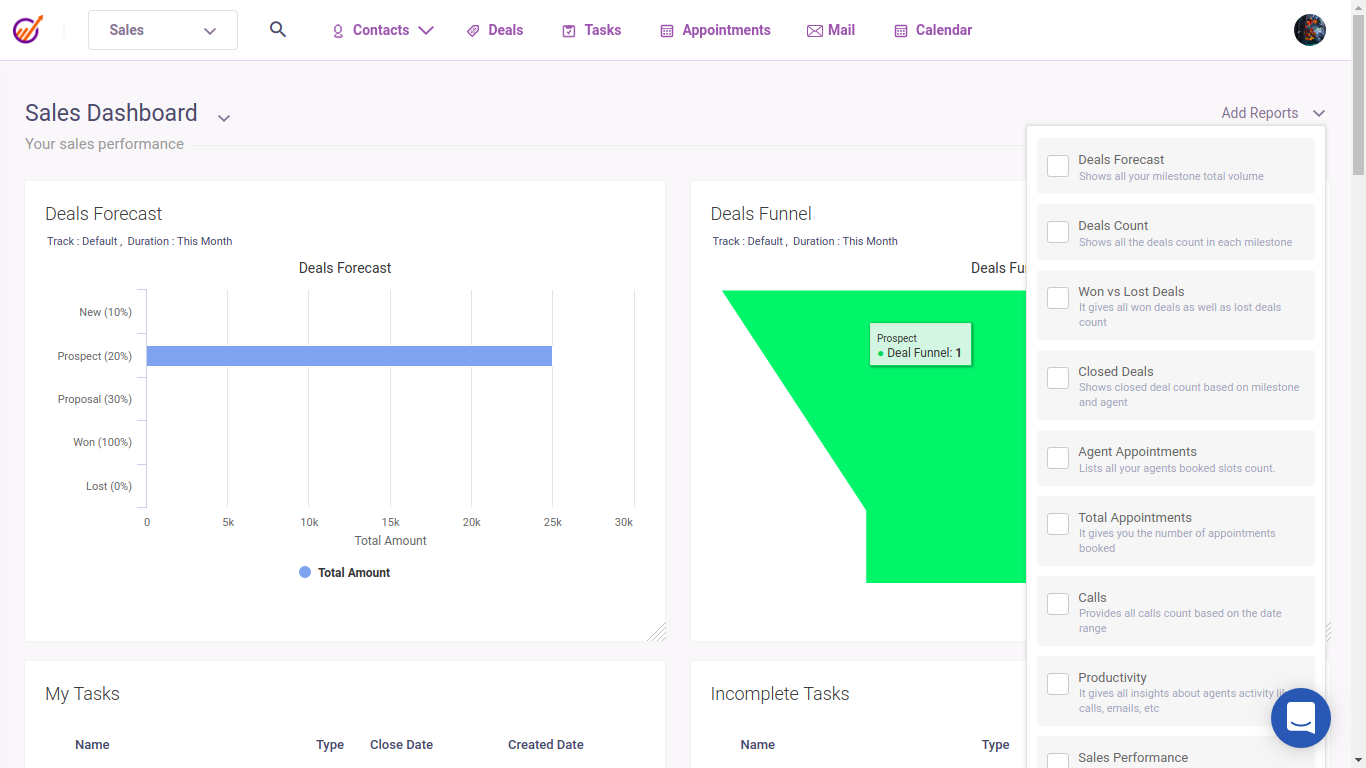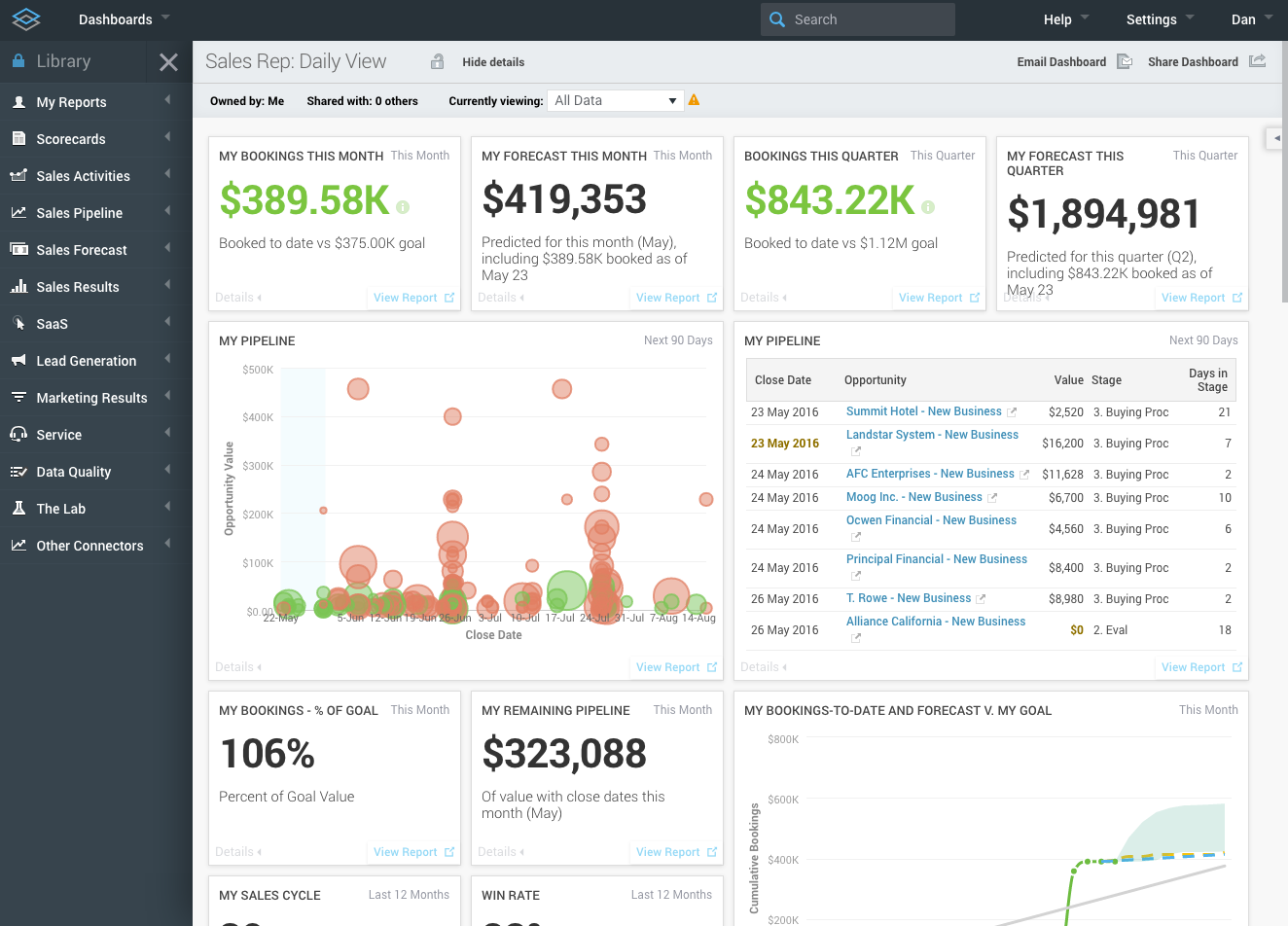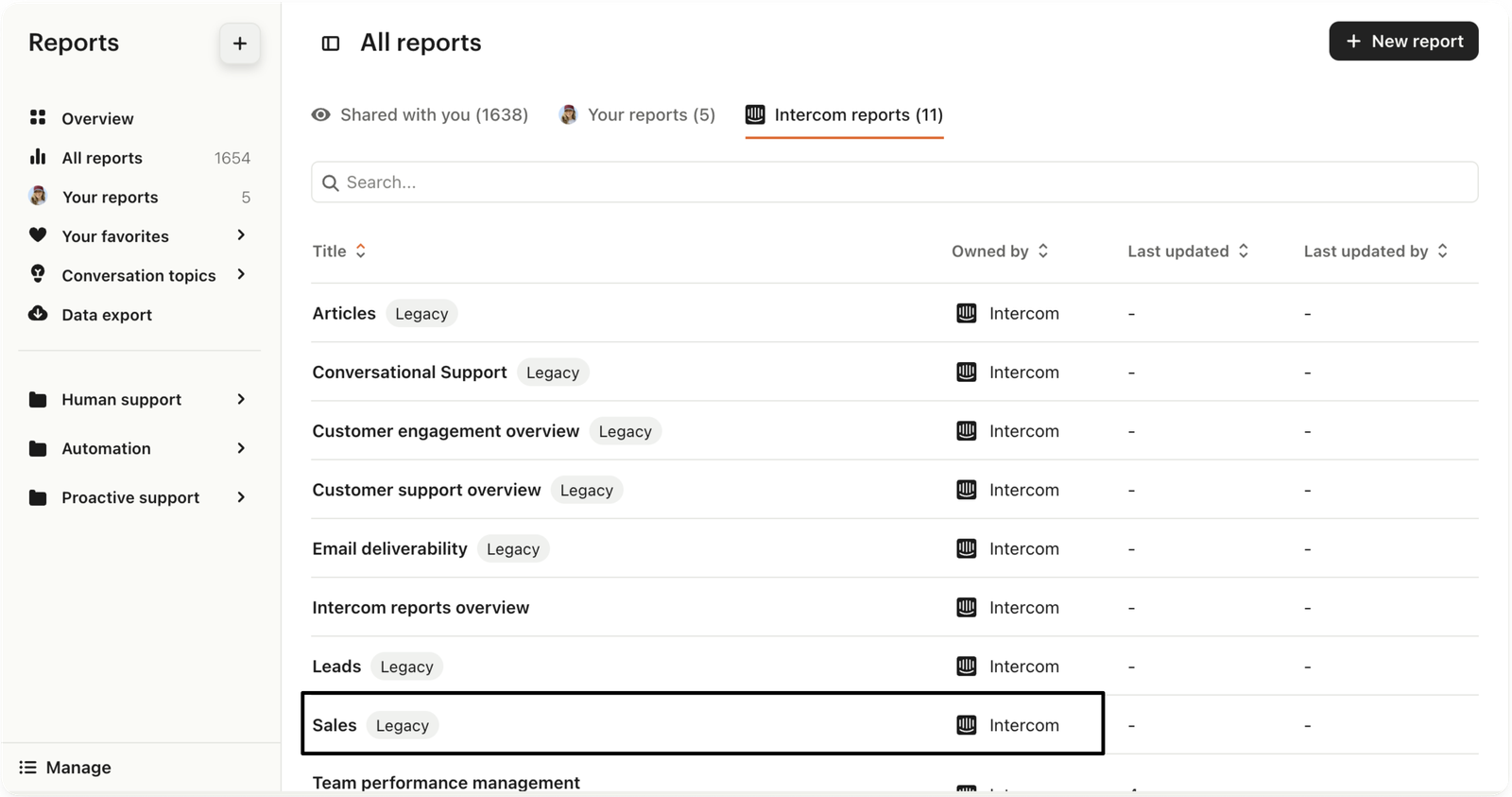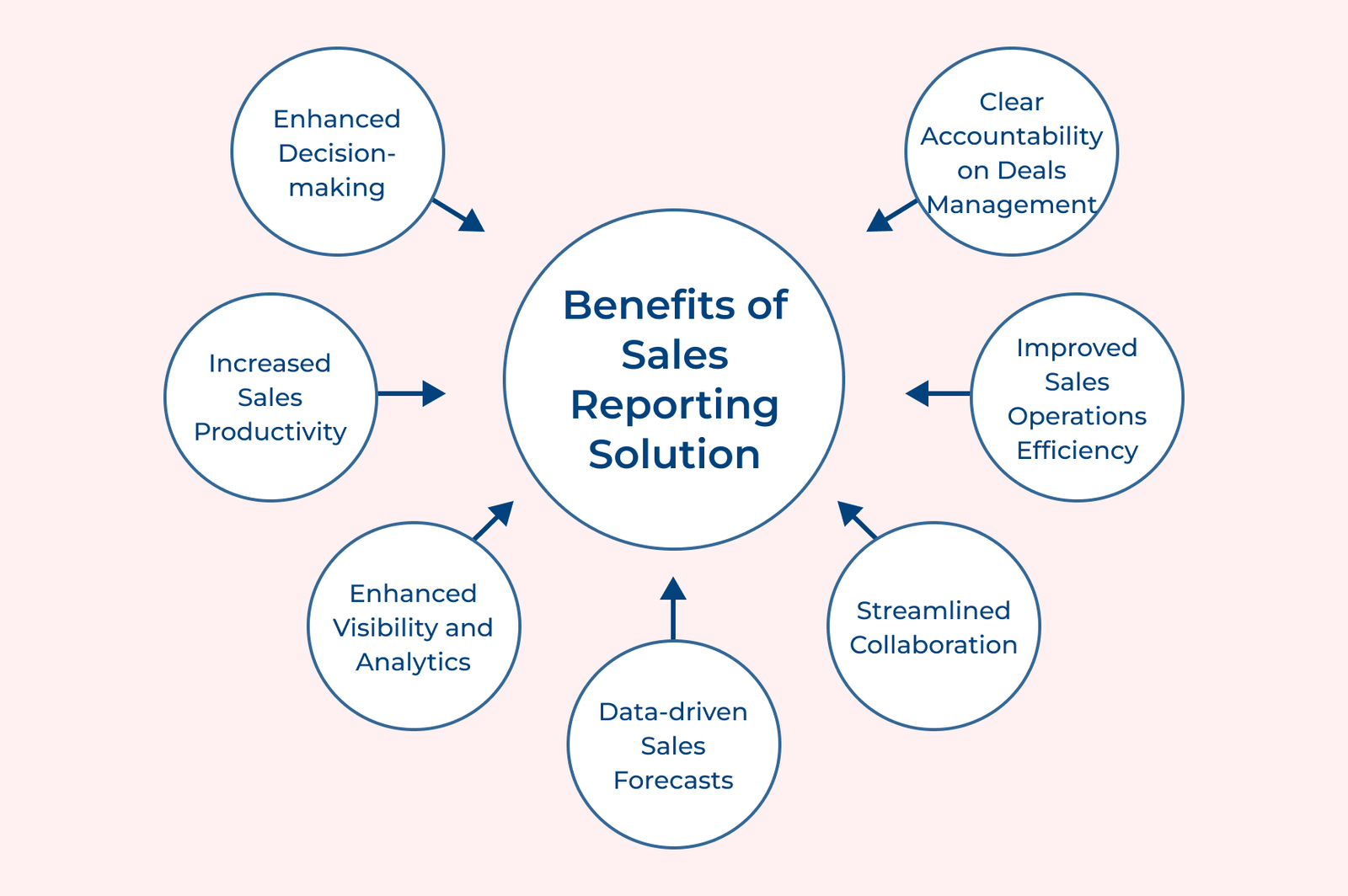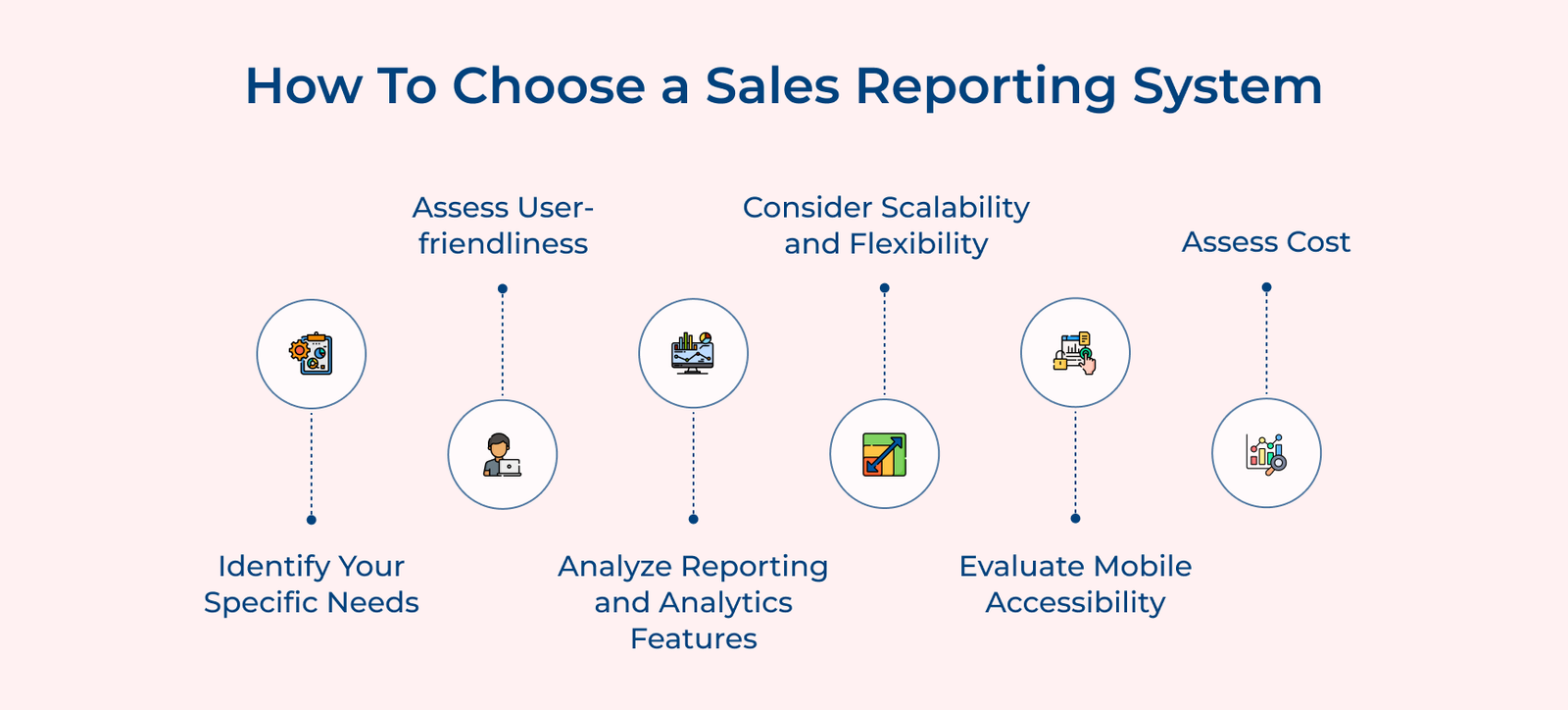1. Contact Management
Effective sales reporting tools offer comprehensive contact management capabilities. They allow sales teams to store, organize, and access crucial customer information effortlessly. The tools typically include features like lead tracking, contact history tracking, communication logs and customizable fields for detailed customer profiles. Centralizing the data enables sales representatives to quickly retrieve relevant information.
2. Sales Pipeline Visualization
Visual representation of the sales pipeline is a critical feature in modern reporting software.
The functionality provides a clear, graphical overview of deals at various stages that enable sales managers and representatives to assess progress at a glance. Interactive pipeline visualizations often allow users to drag and drop deals between stages, update information or identify bottlenecks.
3. Robust Reporting & Analytics
Advanced reporting and analytics capabilities, including predictive lead scoring, are the cornerstone of sales reporting tools. The features offer in-depth insights into sales performance, trends and key metrics. Users can generate customizable reports on various aspects such as revenue, conversion rates and product performance. Interactive dashboards and data visualization tools help transform complex data into actionable insights, empowering teams to make data-driven decisions.
4. Sales Forecasting & Planning
Predictive analytics and forecasting tools are invaluable for strategic planning. The features utilize a proven sales forecasting method by using historical data and current trends to project future sales performance. Providing accurate sales forecasts helps the team assist in setting realistic targets and allocating resources effectively.
5. Collaboration Tools
Modern sales reporting software often includes collaboration features to enhance team communication and coordination. The features may include shared calendars, task management systems and internal messaging platforms. Such tools ensure that all team members are aligned on goals, strategies and individual responsibilities.
6. AI-powered Report Generation
Artificial Intelligence is revolutionizing report generation in sales software. AI-powered tools can automatically analyze vast amounts of data to produce insightful, easy-to-understand reports. The systems can identify patterns, anomalies and trends that might be overlooked by human analysis which provides deeper insights.
7. Email Tracking
Email tracking features allow sales representatives to monitor client engagement with their communications. The tools typically provide information on email opens, click-throughs and attachment views. Sales teams are enabled to gauge client interest, time follow-ups effectively and tailor their approach based on client behavior.
8. Sales Team Performance Reports
Comprehensive performance reporting for individual sales team members and the team as a whole is a crucial feature. The reports typically include metrics such as team quotas, conversion rates, average deal sizes and activity levels. The tools help managers identify top performers, areas for improvement and training needs, by providing clear visibility into performance metrics driving team productivity, a key component of a successful sales enablement strategy.

